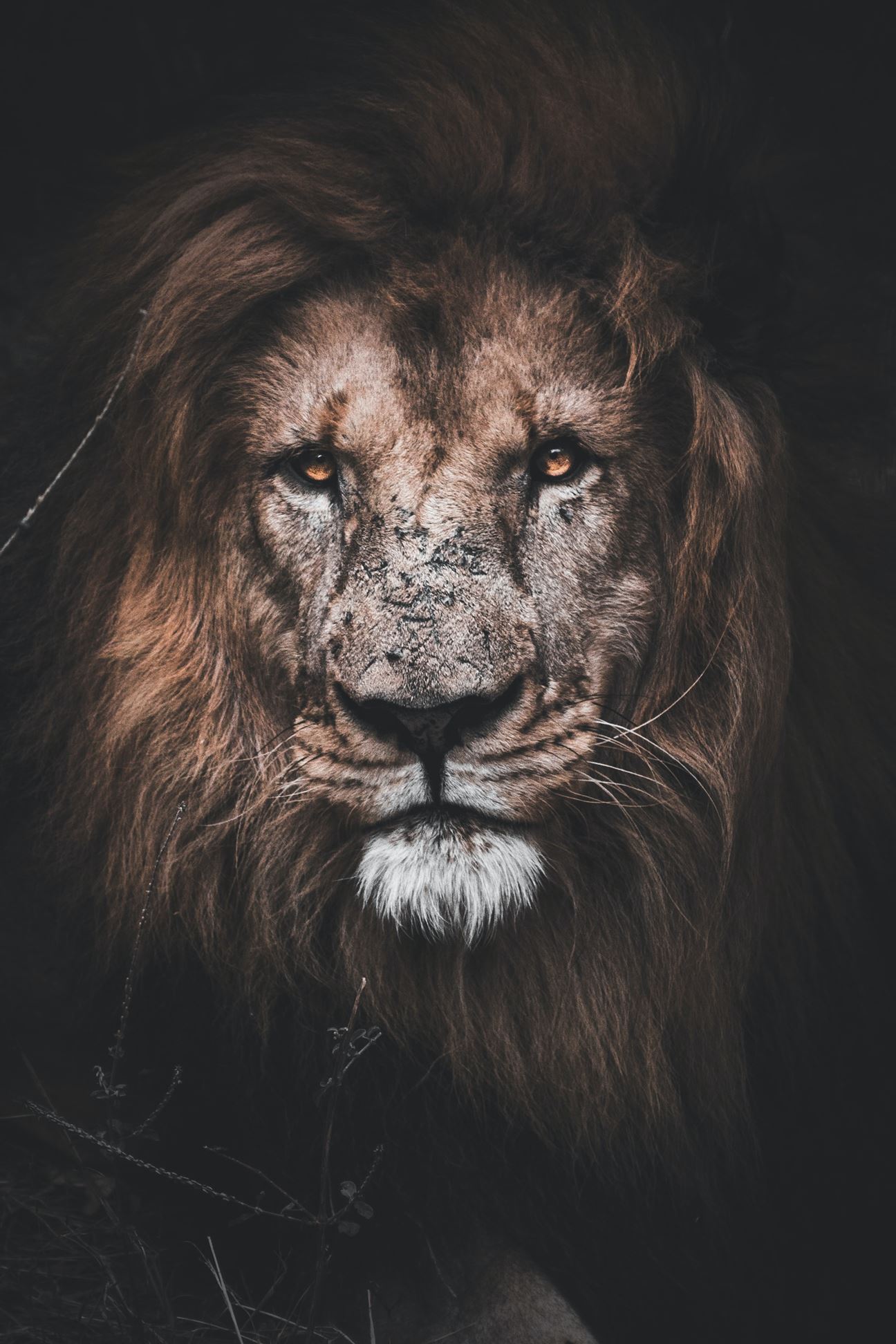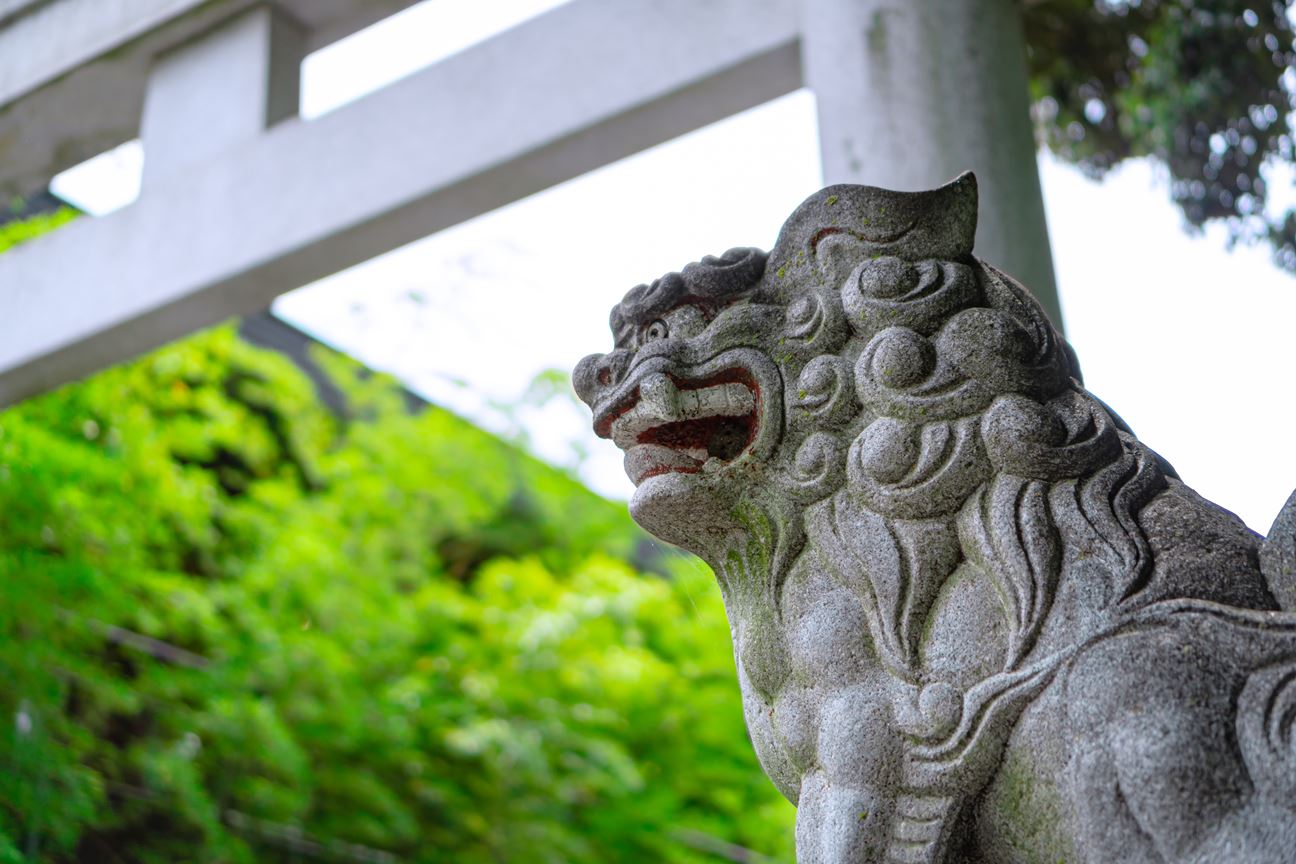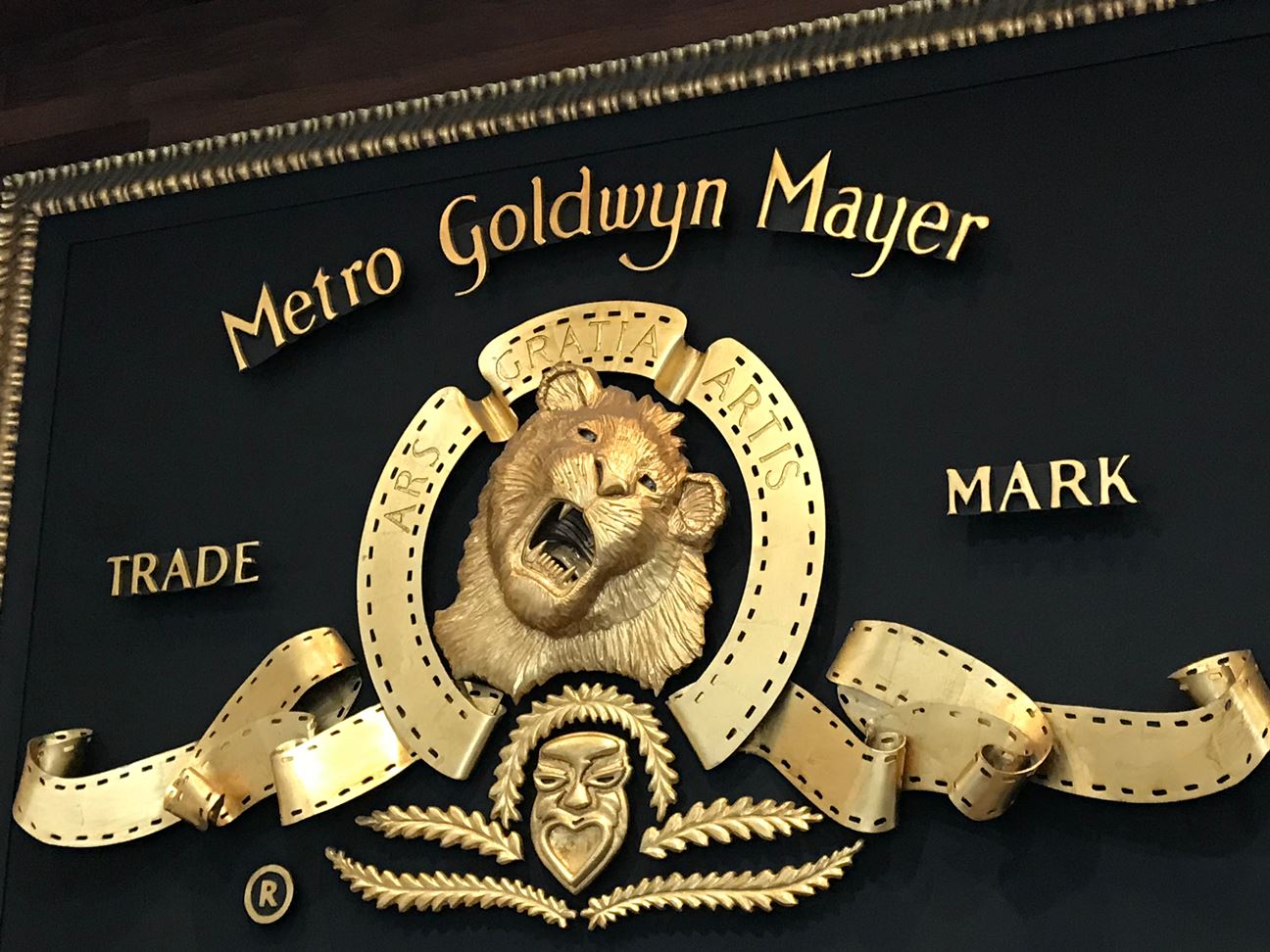This World Lion Day, let us look at the many ways the royal and stately lions are celebrated in ancient, spiritual, and popular cultures.
Have you ever noticed, we keep seeing lions everywhere? They are often seen as mythical creatures, spirit animals, angels, animal totems, and so much more. Often hidden in plain sight, lion symbolism serves many purposes - protection, guidance, power, and also balance. A lion symbolises a positive and powerful time in our life. As I am sure you are aware, lions are predominantly associated with strength, bonding, wisdom, and pride. Through ancient history and its various spiritual implications, the many characteristics of a lion have guided us and continue to guide us in many walks of life. On the occasion of World Lion Day, let's try to decode some of the lion symbolism.
 This lion's handsome face is raked with claw marks
This lion's handsome face is raked with claw marks
A Few of the Earliest Recorded Lion Representations and Depictions
The lion, more so a male lion with its mane, is one of the most frequently appearing icons across many cultures. Careful examination reveals that humans have seemed to engage in early imagery of lions through the medium of wall paintings and artefacts, such as ivory and clay figurines. Despite being feared for their size and might, lions have enjoyed an overall positive portrayal across Asia, Africa, and Europe. Paintings and carvings from the Upper Paleolithic period found in the Lascaux and Chauvet Caves confirm lions were indeed a part of ancient and medieval cultures. A lion sculpture made from a mammoth's ivory was found in the Vogelherd Cave in Germany's Swabian Jura Mountains. And this sculpture appears to be from some 40,000 years ago! In ancient Egyptian cultures, lionesses were worshipped as war deities. Some Egyptian pantheons include the widely photographed Great Sphinx of Giza, Mafdet - the first of the Cat Goddesses, Menhit - a Nubian war goddess, and Tefnut - an Egyptian goddess of water and fertility.
Lions in Traditional Tales and Legends
The presence of lions across the major religions and cultures point to commonalities towards the origination of many religions. In Japan, Koma-Inu statues that guard the entrances of many temples and shrines are lions. During the Edo period, Kara-shishi, a lion, was one of the most commonly painted images. In Chinese culture, the Han Dynasty’s strength and nobility were represented by a performance featuring a lion dance. Buddhist texts also make many references to a lion. Some say that Buddha shared the same power and wisdom as that of a lion. Lions are often found in Indian mythology and the history of ancient India. Narsimha, who is Lord Vishnu, is seen as half man, half lion. ‘Singh’ a very common Indian Vedic name, literally means ‘lion’ and was used by the Rajputs, the warrior caste, since the 7th century. Today, along with many Hindus, the name ‘Singh’ is also used by millions of Sikhs worldwide. The island nation of Singapore has derived its name from two words: singa (lion) and pura (city).
 The koma-inu is a pair of carved guardian lion dogs at the gate of a japanese shrine
The koma-inu is a pair of carved guardian lion dogs at the gate of a japanese shrine
In Middle Eastern culture, lions depict courage, bravery, and royalty and can be traced back to the Mesopotamian Babylonian. The Lion of Babylon not only symbolised King Nebuchadnezzar’s kingdom, but was often used to instil fear in the minds of the enemies. A single stone lion stands guard even today in Iraq.
In the west, too, one will find many symbolic representations of the lion. The Bible has many references to a winged lion that was portrayed as a symbol of Mark, one of Jesus’ disciples. In Celtic mythology, the lion was a symbol of royalty and was commonly used to distinguish between the nobility and the commoners.
Dreaming of Lions
Dreaming of a lion can carry many powerful meanings. While dreaming about lions can mean all good things, it can be scary and confusing for many. Remember, these are mere interpretations and can vary based on contexts and contents. Let us look at some of the most common lion dreams.
- Generic lion dreams - Seeing oneself as a lion inside the dream can also be a sign of the said person overcoming emotional difficulties. It can also mean that this person feels the need to control others around him and be always in charge. People who dream of themselves as lions are usually proud of their possessions and the milestones that they have achieved.
- You acting towards the lion - Examples include riding a lion which can mean that you are content in life; feeding a lion, which can indicate that your inner lions may need to grow more pride; hunting a lion can mean you are chasing leadership roles in life, and taming a lion can suggest that you have an amazing ability to keep your aggression in check.
- A lion acting towards you - This can include various actions that you see a lion perform in your dream that are directed towards you. Like, a roaring lion suggests that you like to define your boundaries very well and that you like to display your territory and power. Some people also dream that they are being protected by a lion. This can suggest that you have a fatherly figure who is looking out for you.
- Lions performing aggressive actions towards you - These dreams can be indicative of negative emotions. If possible, one should make a note of the emotions that he or she experiences within such dreams. Examples include a lion attacking you. Such a dream can suggest that you may be driven to self-destruction. If in a dream a lion is chasing or hunting you down, it could indicate that you, at times, feel helpless being surrounded by certain people who misuse their power or position. And if in a dream you see yourself escaping a lion, it can suggest that you have avoided a great deal of danger in reality.
Lion as a Spirit Animal
Spirit animal is often one’s spiritual guide. A sort of messenger that helps and guides an individual on a journey. People who have lions as their spirit animals are known to easily overcome stressful situations. It is believed that the lion’s energy, strength, pride, and sense of self-worth helps these individuals step up and take control of any circumstance. Yes, the lion has a mighty roar, but he also loves the silence. When resting, a lion is often seen as a gentle being. Ask for a lion’s guidance when meditating and his royalty and nobility will help you get things done in ways without raising your voice.
Lion Tattoos
Through years of history, humans have shared territory with the lions, so it is no surprise that lion tattoos are incredibly popular. But what are some lion tattoos and the meaning behind these tattoos? Let us find out:
- Hakuna Matata - Anyone who loves Lion King can probably be seen sporting this tattoo. For context, Hakuna Matata was a line sung by Timon and Pumbaa in the Disney franchise. The phrase, in Swahili, means "no worries"
- Courage - As such, one of the most common lion tattoo meanings is the one with courage and bravery. Take examples of Cowardly Lion in The Wizard of Oz or the Gryffindor Flag from Harry Potter. These kinds of lion tattoos signify a fearless individual who is ready to overcome a challenge through courage.
- Royalty - Lions are the king of the jungles! The lions' appearance and mannerisms make them look regal. In fact, for many people, a lion tattoo symbolises an individual's aspiration towards leadership.
- Power and Masculinity - Lions are powerful beasts and are known to have killed with a single paw strike! The sheer power of a lion has made it a common symbol denoting strength and power. People with lion tattoos often associate themselves with one’s own power and masculinity.
- Vitality - A lion sits on the top of the food chain, making him known as a healthy, strong, and fearless individual. This aspect of a lion ascribes to an energetic youthfulness. Their vitality often exemplifies virility - the power to create a new life, and hence a lion is often associated with the sun.
Lion as Logos That Inspired Many Beautiful Designs

Today, lion symbols are used as logos for many designer brands, sports teams, national flags, and luxury brands. Here are some examples of lion mascots, most of which are instantly recognisable. To start with, we all have seen Hollywood’s most famous lion - Leo of the Metro-Goldwyn-Mayer studio. Before Leo, five other lions have served as MGM mascots. Can you believe that these furry mascots have been roaring onto our television screens since 1916? Moving on, hotel chain The Ritz-Carlton and its iconic lion and crown logo is another such example. The logo is a combination of the British royal seal and the hotel’s financial backer and represents elegance, refinement and noble bearing. The logo of one of the top-level football leagues in the world, the Premier League, is built around one such symbol - the lion. The lion’s confident and elegant look has been the core element of the league where the 20 best football clubs compete. A lion’s bravery, pride and royalty have earned it a place on many country flags. The flag of Sri Lanka has a golden lion carrying a sword in its right fore-paw. Bermuda has an armour wearing red lion standing on its two feet. The Montenegro flag has a two-headed eagle displaying a shield with a golden lion. Automobile brand Peugeot underwent many logos re-designing, but the lion remained an integral part of the brand. Over the years, the lion symbolised the brand's toughness, strength, and flexibility.
A lion is a born leader and yet displays exemplary balance and harmony with nature. This World Lion Day, let us celebrate the animal kingdom's most beautiful animal by sharing the many meanings behind lion symbolism with our family and friends. Do you know of any more examples of lion symbolism? Do let us know in the comments below.